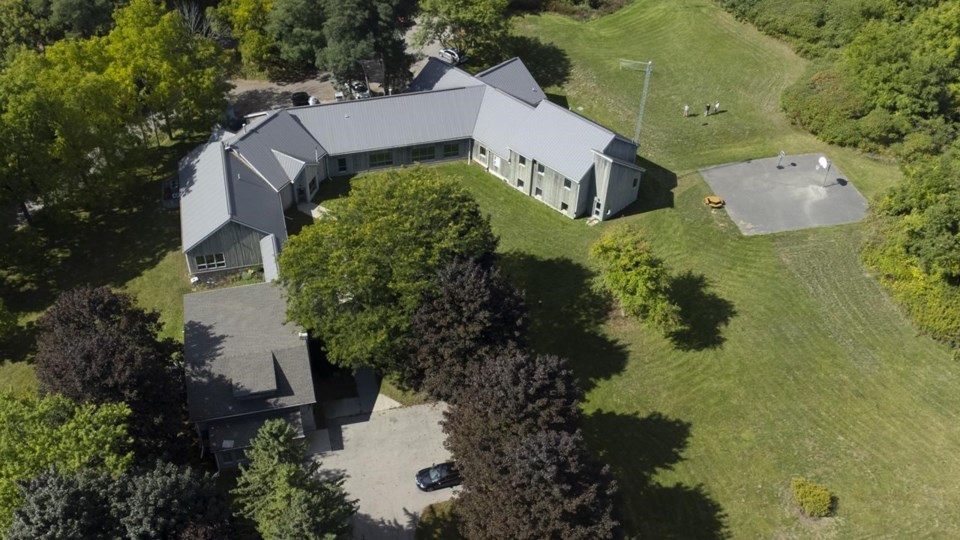Ontario should establish more Indigenous-led and culturally appropriate services for youth in crisis to prevent tragedies similar to the death of an Indigenous teen who went missing from a group home, a lawyer representing his grandmother argued Wednesday.
During closing arguments at the coroner's inquest into Devon Freeman's death, Justin Safayeni said there's a need for more funding from the provincial and federal governments to better support off-reserve Indigenous children and their families.
Safayeni said a recurring theme in the inquest is "the importance of a youth's Indigenous culture, and how important a cultural connection and an Indigenous wellness lens can be to helping a young person overcome struggles and challenges like what Devon was going through in his life."
"There's just no substitute for being able to go back and be on the land of one's home community with the people of that community," he said.
The inquest has heard that Freeman -- who was a member of the Chippewas of Georgina Island First Nation -- was 16 when he was reported missing from the Lynwood Charlton Centre group home in the Flamborough area of Hamilton in the fall of 2017. His body was found in April of 2018 and an autopsy determined he died by hanging.
Safayeni highlighted a number of the 73 proposed recommendations -- all supported by Freeman's family -- from those who have testified at the inquest that are aimed at preventing similar deaths and improving services for youth exhibiting suicidal ideation or other complex mental health needs.
The recommendations are being proposed in two sets -- a first, joint slate that are not opposed by any parties involved in the inquest, and a second directed at the Ministry of Children, Community and Social Services and is only being opposed by the ministry, Safayeni said.
"Without a shift in how resources are allocated and prioritized for these things, the systemic problems underlying the outcome in Devon's case will not be fully addressed," he said, "and that kind of shift can only come from the government."
The first recommendation suggests that Freeman's story be used as a case study for training staff at children's aid societies and residential service providers.
"The recommendation proposes to use Devon's story as an important and dramatic example of how the system can fail," said Safayeni.
Other recommendations highlight the need to establish Indigenous-led mental health services and facilities across Ontario, such as an Indigenous youth crisis line and counselling call centre.
Leanna Farr, counsel for the Anishinabek Nation that represents the Chippewas of Georgina Island where Freeman was from, said a First Nation-specific call centre may have helped Freeman, who longed for a connection to his cultural identity, when he was feeling hopeless.
Jurors have heard Freeman attempted suicide earlier in 2017 and had a history of suicidal thoughts and self-harm while in a residential program in 2015 and 2016, culminating in another reported suicide attempt.
"To no fault of their own, our nations can be disconnected from our children, some of our children have never been to the First Nation," she said. "Reconnecting and maintaining meaningful connection with our First Nation children and families is absolutely crucial."
Farr called on Ontario's Ministry of Children, Community and Social Services, the Ministry of Health and the federal government to provide "direct, sustainable, equitable and adequate joint funding" for service providers serving off-reserve First Nations children, youth and families and to increase collaboration between child welfare and mental health services.
Sarah Clarke, counsel for the Chippewas of Georgina Island said the First Nation is "disheartened" and "angry" that the Ministry of Children, Community and Social Services is not supporting the second slate of proposed recommendations.
"It is mind boggling to us that a system built to serve and protect children is not at the forefront of their decision-making," she said.
The Ministry is expected to present closing arguments on Thursday.
Jurors have also heard police weren't told of Freeman's suicidal ideation, or his suicide attempt, when he was reported missing in the fall of 2017. No safety concerns were listed on the missing persons report, the inquest has heard.
Marco Visentini, counsel for the Hamilton Police Service, said police accepted and supported a number of recommendations aimed at the force and admitted there were things "the service could have done better" in handling Freeman's case.
Multiple parties emphasized a recommendation that establishes a right for First Nations children receiving services under the Child, Youth and Family Services Act to be able to visit their home communities. Visentini said it struck and saddened him on the ferry back from Georgina Island, where the inquest began, that he had been there and Devon hadn't.
"I know there's no silver bullet here that we've uncovered in these proceedings, but I think that might have made a difference," he said.
Caitlyn Kasper, counsel for Aboriginal Legal Services, said the child welfare system has failed to meet the unique needs of Indigenous children brought into state care, who are overrepresented in the system.
For that reason, she argued that Freeman's death is not an isolated incident because it happened "within a broader historical and social context of colonial policies that continue to control Indigenous people and communities."
"Rather, it is the story of many, many children in the child welfare system," she said.
Closing arguments are expected to conclude on Thursday.
The inquest's jury may then make recommendations aimed at preventing future deaths from occurring in similar circumstances, based on evidence heard at the inquest.
This report by The Canadian Press was first published Oct. 19, 2022.
—â¶Ä”â¶Ä”
This story was produced with the financial assistance of the Meta and Canadian Press News Fellowship.
Tyler Griffin, The Canadian Press


